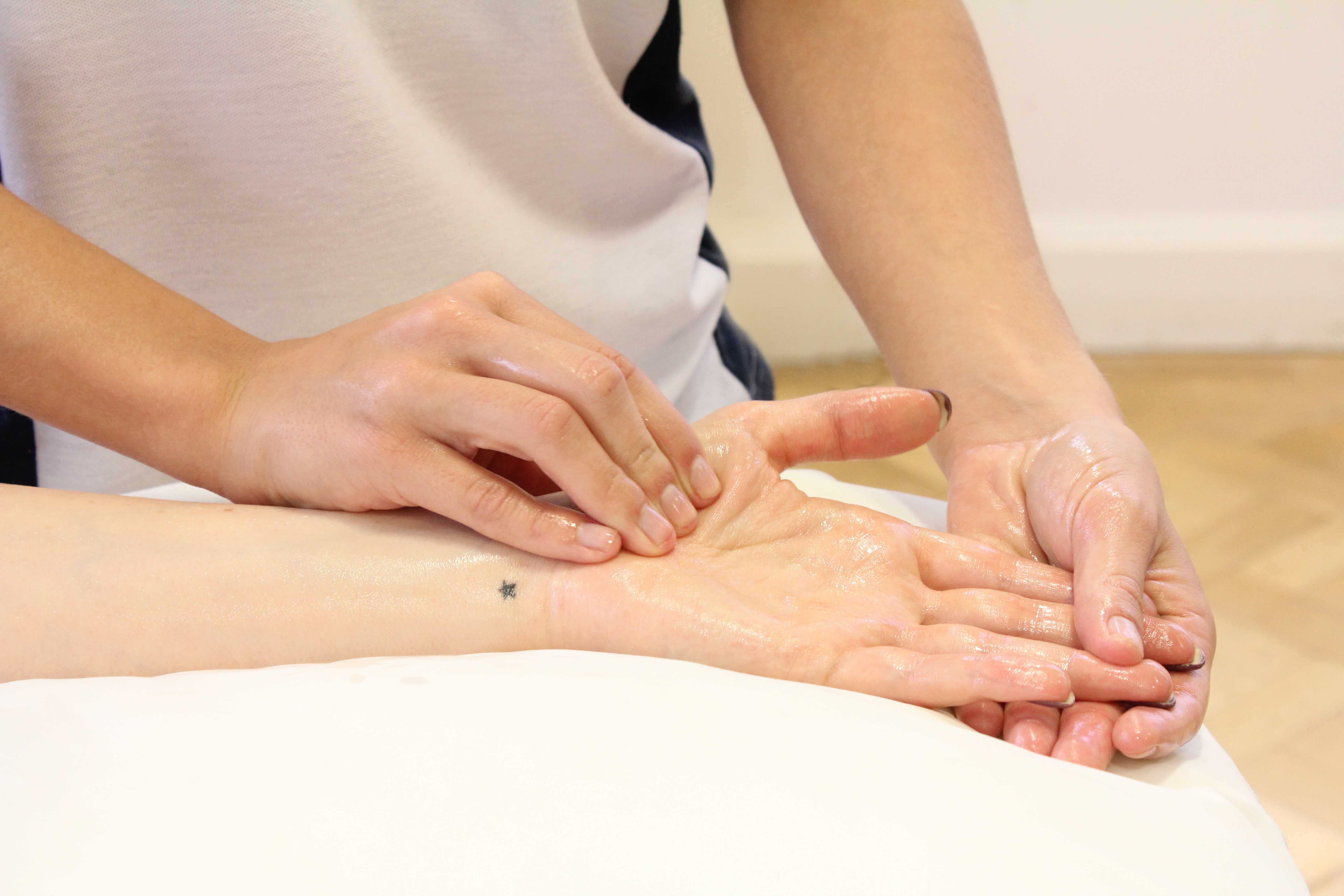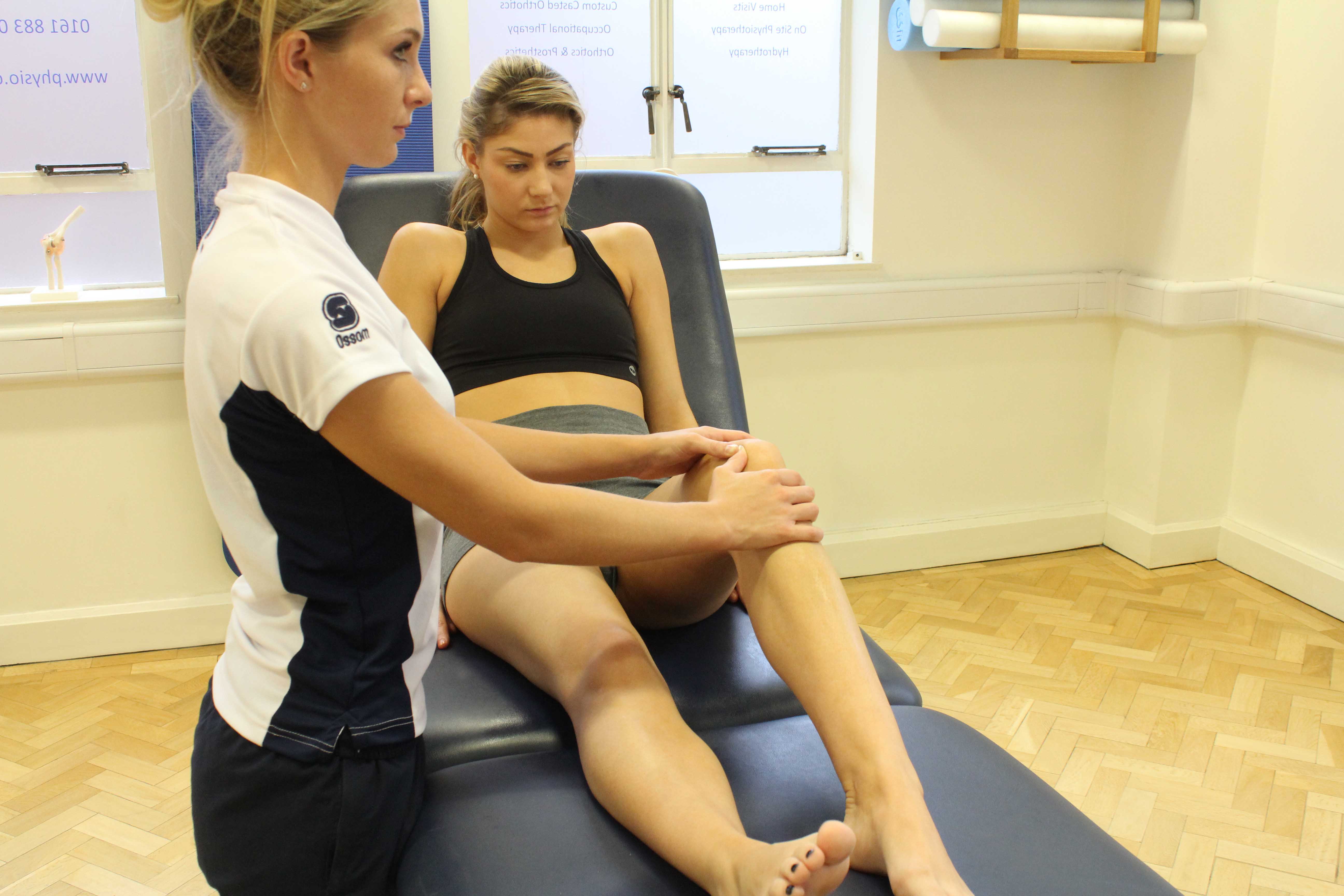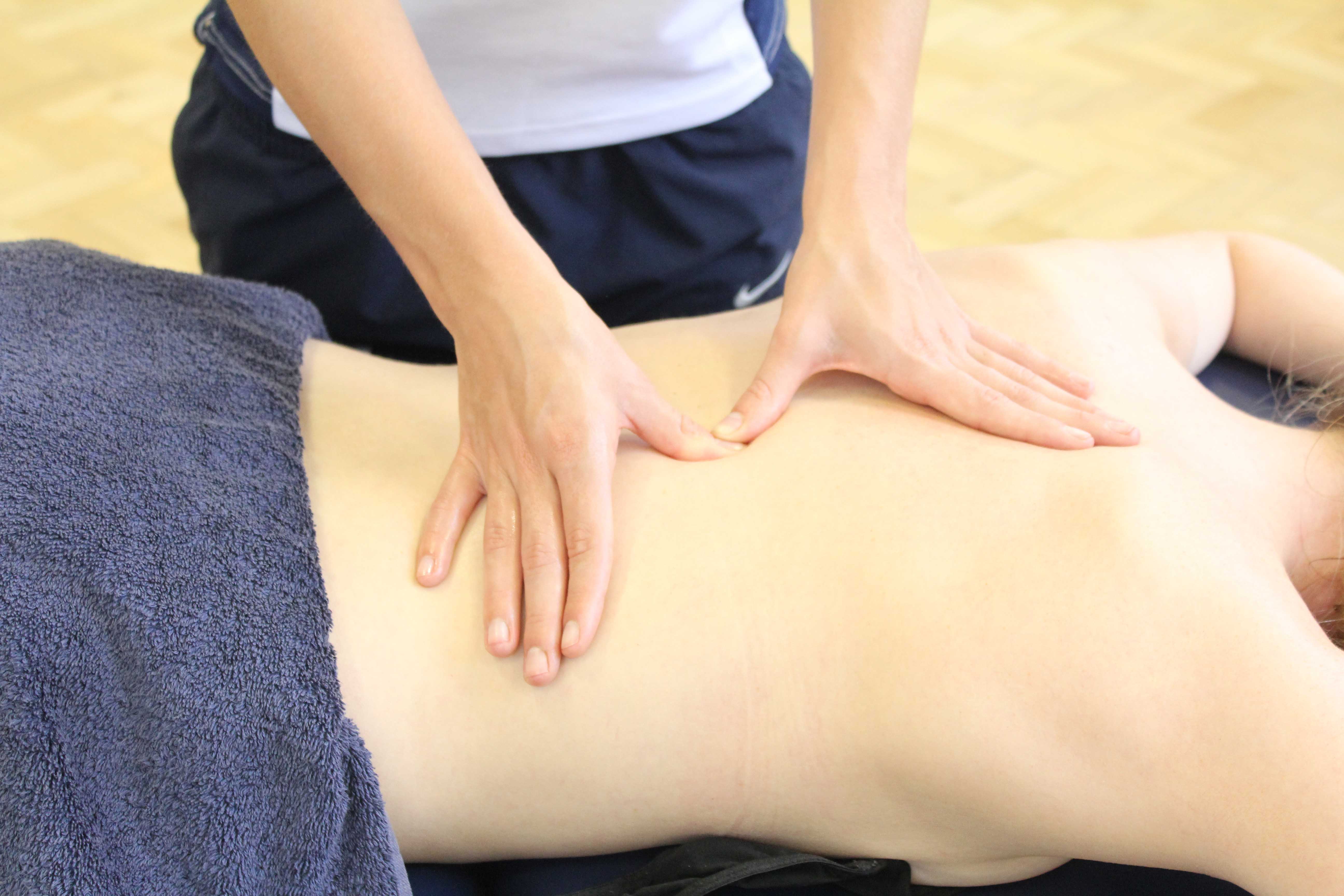What is rheumatoid arthritis?
Rheumatoid arthritis is an inflammatory condition which can affect a number of joints in the body. Usually, the articular surface (lining) and synovium (fluid filled sac coving the joints surface) become inflamed which can then interfere with your normal hobbies or activities of daily living. The inflammation occurs as a result of the body’s immune system attacking various joints although the reason for this is not known. The inflammation may also affect the cartilage and the ligaments within a joint which can be very painful.
 Above: Soft tissue massage of the palma fascia to relieve pain and stiffness
Above: Soft tissue massage of the palma fascia to relieve pain and stiffnessThere are a number of symptoms that may be experienced if you have rheumatoid arthritis and these can vary at different times. Physiotherapy is a very effective way of reducing these symptoms and Physio.co.uk has specialist physiotherapists that can provide you with a comprehensive treatment programme that is appropriate to meet your individual needs.
Potential symptoms may include:
- Pain
- Swelling of certain joints
- Stiffness which occurs especially in the mornings
- Redness over the joints
- Heat within the joints
- Unable to carry out your normal activities of daily living
- Tiredness
- Anxiety and depression
- Anaemia (reduced red blood cells)
- Weight loss
- Joint instability
- Deformities
- Rheumatoid nodules (lumps) over the joints
- Shoulders
- Wrists
- Metacarpophalangeal( MCP) joints (knuckles)
- Proximal interphalangeal (PIP) joints of the hand (middle joints of fingers)
- Knees
- Ankles
- Proximal interphalangeal (PIP) joints of the foot (middle joints of toes)
 Above: Massage and mobilisations of the joint and connective tissue of the knee
Above: Massage and mobilisations of the joint and connective tissue of the kneeHow is rheumatoid arthritis diagnosed?
There are a number of tests used to diagnose rheumatoid arthritis and it is often the combined results of these tests that confirm the disease. If you are experiencing any of the symptoms mentioned above, it is important that you go to your GP as soon as possible. Early diagnosis of rheumatoid arthritis will provide a more effective treatment. The tests used include:
- Blood tests
- X-rays
- Ultrasound scanning
- Number of symptoms
 Above: Mobilisations of the thoracic vertebrea to relieve pain and stiffness
Above: Mobilisations of the thoracic vertebrea to relieve pain and stiffnessHow will physiotherapy help with rheumatoid arthritis?
Physiotherapy can help manage and reduce your symptoms in a number of ways. Your physiotherapist at Physio.co.uk will encourage you to take an active role in your treatment programme which will help you to work towards your goals. Physiotherapy can help in the following ways:
- Pain control
- Reduce inflammation and joint stiffness
- Help you to return to your normal activities of daily living or sports
- Reduce tiredness
- Increase range of movement at joints
- Increase muscle strength
- Relaxation
- Improve cardiovascular fitness levels
What physiotherapy will be used for rheumatoid arthritis?
There are a variety of physiotherapy options that can be used to treat rheumatoid arthritis. The choice of treatment will depend on a number of reasons including your symptoms and the severity of the condition. Your physiotherapist at Physio.co.uk will work with you to design an individually tailored programme to optimise your treatment and help your remain as active as possible. Potential physiotherapy treatments may include:
- TENS (transcutaneous electrical nerve stimulation)
- Massage
- Acupuncture
- Cardiovascular activity (swimming, cycling)
- Hydrotherapy
- Pacing advice
- Range of movement exercises
- Strengthening exercises
- Wax therapy
- Gentle mobilisation techniques
- Cryotherapy (ice therapy)
- Heat therapy
- Provision of splints
- Provision of adaptations to help around the home
- Electrotherapy techniques (including Megapulse)
Summary
Rheumatoid arthritis is an inflammatory condition that mainly affects the joints of the shoulder, knee, wrist, hand and foot. The inflammation is caused by an attack of the body’s own immune system on the tissues in these joints. You may experience stiffness, swelling, tiredness and pain as symptoms of rheumatoid arthritis. Physiotherapy is an effective way to reduce these symptoms and helps promote self-management so you can keep doing all the activities of daily living that you usually do. Please call Physio.co.uk on 0330 088 7800 today to book an appointment with one of our specialist physiotherapists. You can also book an appointment online

 0330 088 7800
0330 088 7800

































